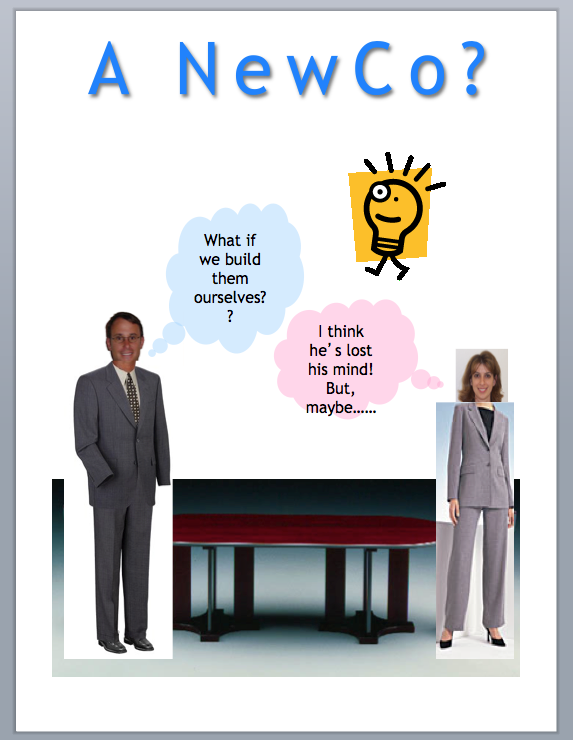 I think in the enterprise, in SaaS, it’s especially important you pick the right co-founders. It’s a 7-10 year journey, after all. In Consumer Internet, I guess so long as you hit it early, you can always get rid of Eduardo (as expensive as that may be), kick out the Sean Parkers, bring in the Sheryl Sandbergs later. So long as you just go nuts in the early days, it can all work out.
I think in the enterprise, in SaaS, it’s especially important you pick the right co-founders. It’s a 7-10 year journey, after all. In Consumer Internet, I guess so long as you hit it early, you can always get rid of Eduardo (as expensive as that may be), kick out the Sean Parkers, bring in the Sheryl Sandbergs later. So long as you just go nuts in the early days, it can all work out.
But SaaS compounds. It’s incredibly hard to achieve lift velocity. It takes years. But once you get there, you can be unstoppable.
>> So having long-term founders matters even more in SaaS, in selling to the enterprise. And I’ve been reflecting lately on what makes great long-term co-founders.
And I don’t think it’s the obvious. It’s not complementary strengths.
That’s the easy part. E.g., I’m Great at Sales and Raising Money. You’re Great at Marketing. He’s a Rockstar Engineer. We mesh great. We are complementary. We will rule the universe. We are the Beatles.
Well maybe. But when it gets hard — and it always gets hard in SaaS — I think what really matters is that you can continue on the journey. And for that, I think you each need to complement your co-founders’ weaknesses. That your Strengths cover up for, and in fact, completely mitigate, their weaknesses.
Let me analyze the first company I co-founded, NanoGram Devices, to illustrate. Back then (2002), I had some good Strengths. Strong vision, ability to recruit a very strong initial team, ability to raise capital, tons of energy and commitment … and perhaps most importantly, ability to convince customers to buy $6,000,000 of product on a handshake. Important stuff, yes.
But I had a lot of weaknesses, some of which I’ve conquered, some of which are still with me. Here’s a shortlist of My Top Weaknesses at a First-Time Co-Founder:
- Lack of sufficient technology background to truly understand our product at a technical level.
- Lack of sufficient line management skills to manage lots of non-managers / line reports.
Those were clearly the worst ones, there are/were many others.
And my co-founder had her own list. I won’t list them here without her consent 😉
But the thing is, our weaknesses, they meshed. In fact, I don’t think anyone else even knew about them, they meshed so well. My co-founder, she not only was an incredible CTO and technologist — but she had the gift of completely patient, condescension-free instruction. She could explain everything I couldn’t about our technology, to anyone, anywhere, anyhow — to customers, to investors, to technical, non-technical resources, to Ph.D.s, to masters, whatever. She made me look smart here, where I was {secretly} weak.
And while I brought together the management team and the capital, at that time, I just lacked the experience and skills to manage a whole team of engineers and technicians and the lot. Put simply, I didn’t have interest or experience in true line management.
And my co-founder — she was just GREAT at this. She could infinitely scale here as a manager. Hire as many people as it took. Plan their daily and weekly actions if necessary. Give the right daily feedback. Drive every inch of the Gantt chart.
And what was the result? Well, not a Facebook-like outcome. But we took a piece of technology nobody believed in. That nobody thought was worth anything. Nobody. That we couldn’t sell for $50,000. And we turned around, built a company around it — and sold it for $50,000,000 just thirteen months later. We as co-founders added 1000x+ value in 13 months.
How? Looking back, it was because Our Weaknesses Were Complementary. It made us almost Unstoppable. It made us each 2-5x better than we would otherwise have been.

